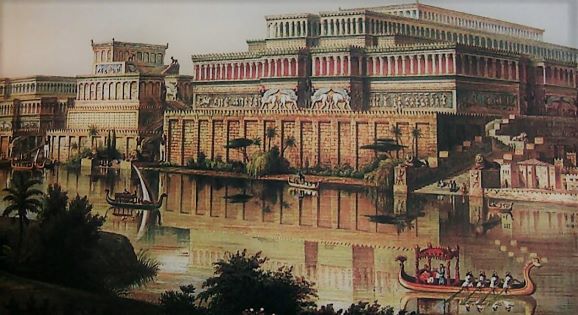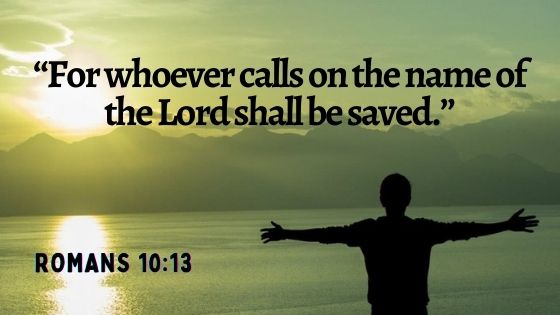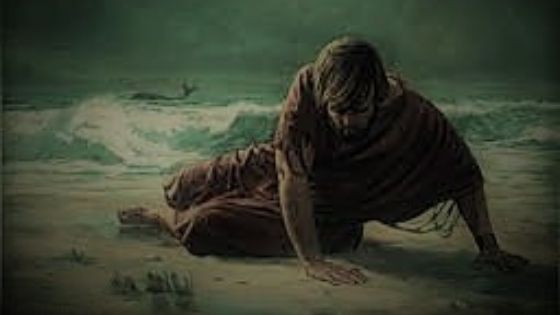Each of the chapters in the book of Jonah records a significant lesson the prophet had to learn. These parallel in many ways the life lessons God consistently and patiently tries to teach each of us along the way.
Overview of the Book of Jonah
Most people are familiar with the story of Jonah and nothing in it surprises them anymore. But what’s the book of Jonah all about?
It’s not simply about a great fish (mentioned only 4 times), a great city (mentioned 9 times), or even a disobedient prophet (named 23 times).
It’s about God! Do you know that God is mentioned 37 times in these 4 short chapters? And if you eliminate God from the book, the story wouldn’t make sense.
Jonah’s Wrong Attitudes
I’m pretty sure most of us can relate to Jonah. He is one of the characters in the Bible who cause us to sigh and think, “Well, if there’s hope for Jonah, there’s hope for me.”
But then we must understand that the Bible was written for us so that we will not make the same mistakes they made.
You see, in his story, Jonah got into trouble because his attitudes were wrong.
What about our attitudes? Can we honestly say that we have become better people since God recreated us? 2 Corinthians 5:17 (NIV) says, “Therefore, if anyone is in Christ, he is a new creation; the old has gone, the new has come.”

You see, to be a new creation is to be changed. There has to be a change in character, change in viewpoints, change in our motivations, goals, and priorities. This is what we call sanctification, or becoming more and more like Christ.
In this article, I would like us to look at the life of Jonah and use his responses to God and the world around him for self-evaluation. If we find ourselves living out the same worldview as God’s resistant and reluctant prophet, then we are definitely in need of an attitude upgrade.
1. Wrong Attitude toward the Word of God
First of all, Jonah got into trouble because he had the wrong attitude toward the word of God, which is also the Will of God.
When the Word of the Lord came to Jonah, what did he do? He consciously and deliberately disobeyed God.
The Lord asked Jonah to “Arise, go to Nineveh, that great city, and cry out against it; for their wickedness has come up before Me” (Jonah 1:2). But instead of going 550 miles northeast to Nineveh, Jonah attempted to go 2,500 miles west to Tarshish (modern-day Spain).
Jonah Deliberately Disobeys God
As we can see, God’s instruction to Jonah was crystal clear. It’s not as if God was speaking in ambiguity or uncertainty. He wasn’t speaking in parables or some figurative speech either. We must understand that God does not tell us one thing and expects us to do another thing.
Yet Jonah decided to disobey God. Now, why is that?
Jonah’s wrong attitude toward God’s word stemmed from a feeling that the Lord was asking him to do something impossible. Alright, what was God asking Jonah to do exactly?
Well, God told Jonah to go to Israel’s enemy, Assyria, and allow them to repent.

Note 1: The city of Nineveh was the capital of the Assyrian Empire and was also a large and prominent city in its day.
Just a quick refresher, when Israel was divided into two kingdoms, the Babylonians conquered Judah and the Assyrians conquered Israel. And the Assyrians were very abusive toward the Jewish people. Just read Nahum chapter 3 to see how wicked they are.
Jonah’s Patriotism Gets in the Way
For Jonah to preach God’s message of repentance to the Assyrians would be like helping Israel’s enemy. It’s like working with the enemy of your country that wants to destroy your people. Anyone who does that today would be considered a traitor and will be tried for treason.
In his patriotic zeal, Jonah put his country before his God. Jonah didn’t want the notoriously cruel Assyrians in Nineveh to escape God’s judgment. He would much rather have seen the city destroyed.
Note 2: We need to understand that there is a divine order that God has put in place with regard to submission to authorities. God is the one who sets up kings and rulers and we are commanded to submit to them.
But when the governing authorities hold to a position that is in clear and direct violation of the Word of God, we must choose to obey God rather than men (the same way Peter and the other disciples and Daniel’s friends did).
God’s Challenging Commands
What are some of the things God commanded us that we find very difficult to do?
1. Love your enemies.
“You have heard that it was said, ‘You shall love your neighbor and hate your enemy.’ But I say to you, love your enemies, bless those who curse you, do good to those who hate you, and pray for those who spitefully use you and persecute you (Matthew 5:43-44, NKJV).
To love your enemies, bless those who curse us, and pray for those who hate or abuse us is easier said than done.
2. Forgive those who have hurt or offended you.
This command is incorporated into the Lord’s prayer.
“Forgive us our sins, as we have forgiven those who sin against us” (Matthew 6:12, NLT).
Take note that this is in the past tense. It means before we even come to God in prayer, we should have already forgiven our offenders.

The Sovereignty of God
When the word of the Lord came to him, Jonah thought he could take it or leave it. Whether he does what God asked him to do or not won’t matter to God. And that God would leave him alone.
As it turned out, that’s not exactly what happened. God used a creative series of counter-measures to accomplish His desired result.
Lesson 1
Jonah learned the lesson of God’s patience. We can run far, but we can’t run away from God.
Jonah attempted to run as far away as possible from God. But before reaching his desired destination, God took a hold of him. We can see in the next events that took place that God was very patient with Jonah (Jonah 1:4-17).
Although God was no longer speaking to Jonah through His Word; He continued speaking to him through His works. God used the sea, wind, storm, and even the huge fish to carry out His plans. Notice that everything in nature obeyed God, except His servant Jonah.
In the beginning, I said that Jonah got into trouble because his attitudes were wrong. But his disobedience to God also brought trouble to a boatload of pagan sailors.
God had called the Jews to be a blessing to all the nations of the earth (Genesis 12:1-3) but whenever they were out of the will of God, they brought trouble instead of blessings.
Self-Reflection
Are you a blessing to others, especially to those who do not yet have a relationship with God? Do unbelievers see God’s glory in you? As the saying goes, “You may be the only Bible some people read.” The idea behind this phrase is that Christians should live the “Christian life” for everyone to see.
2 Corinthians 5:20 says we are Christ’s ambassadors. Matthew 5:13-16 says we are the salt and light of the world. Are we living our calling and commission?
Going back to Jonah’s story, Jonah found himself inside the belly of a fish and stayed there for 3 days and 3 nights. He then cried out to God for deliverance and the fish vomited him onto dry land.
Lesson 2
Jonah learned the lesson of God’s pardon. God forgives those who call upon Him. See Romans 10:11, 13.
While inside the belly of a huge fish, Jonah cried out to God for deliverance. And the Lord spoke to the fish, and it vomited Jonah onto dry land (Jonah 2:1-9).
But it didn’t end there. God gave Jonah a second chance. He gave him the same commission – go to Nineveh and preach the message of God’s upcoming judgment. And Jonah eventually obeyed God.
Think about Jonah’s experience. He had to experience getting stuck inside the belly of a huge fish for 3 days and 3 nights before obeying God.
Do we realize that oftentimes we find ourselves in deep trouble because of our wrong attitudes? We always like to blame Satan for our misfortunes and failures because it’s convenient. It takes away the accountability from us.
But if we would just look deep down, we would discover that we are as much to blame. Our blessings are often delayed because of our disobedience. We often get into trouble because of our rebellion.
When God commands us, we must listen and obey. In the ministry that God has entrusted to us, our part is to obey. In our partnership with God in accomplishing His purpose through us, our part is to obey. Disobedience is NOT an option!
God Gives Jonah Second Chance
What was the message that Jonah preached to the great city of Nineveh?
On the day Jonah entered the city, he shouted to the crowds: “Forty days from now Nineveh will be destroyed” (Jonah 3:4, NLT)!
After hearing Jonah’s message, the people believed in God, a fast was proclaimed for everyone from the greatest to the least of them and they put on sackcloth, including their animals. The king of Nineveh also got off his throne, laid aside his robe, covered himself with sackcloth, and sat in ashes.

Everything they did was a sign of repentance, humility, and surrender. But they did not stop there. They also cried out to God, prayed earnestly, and turned from their evil ways, and violence (Jonah 3:5-8).
This is perhaps the greatest revival of all time as the entire city of Nineveh believed in God, proclaimed a fast, and cried out to God.
Lesson 3
Once again, Jonah learned the lesson of God’s pardon and forgiveness to those who call upon Him. But then, he also learned the lesson of God’s power as he saw a whole city humble itself before the Lord.
In the end, the Lord’s will has prevailed and Jonah’s efforts to thwart God’s plans were pointless.
This is a powerful reminder not only to Jonah but to us all of the sovereignty of God in every circumstance.
Remember the former things of old; for I am God, and there is no other; I am God, and there is none like Me, declaring the end from the beginning and from ancient times things not yet done, saying, “My counsel shall stand, and I will accomplish all my purpose” (Isaiah 46:9-10, ESV).
2. Wrong Attitude toward Circumstances
Jonah also had a wrong attitude toward circumstances; he thought they were working for him when they were really working against him.
Let’s break down what happened here in Jonah 1:1-5.
So, Jonah decided to disobey God and run away from Him. He fled to Joppa and found just the right ship waiting for him (a ship heading to Tarshish).
He had enough money to pay the fare for his long trip, and he was even able to go down into the lowest part of the ship and fall into a deep sleep that the storm didn’t awaken him.
Hey, look at that! Everything seems to be working out perfectly for Jonah.

Clearly, we can be out of the will of God and still have circumstances working on our behalf. We can be rebelling against God and still have a false sense of security that includes a good night’s sleep.
Could it be that it’s the devil who is going out of his way to help us disobey and escape from God? Of course! But most of the time we don’t see it this way. It’s because even when we are out of the will of God, things seem to be going smoothly.
3. Wrong Attitude toward the Gentiles
Instead of wanting to help the Assyrians find the true and living God, Jonah wanted to abandon them in their darkness and spiritual death and he wanted them to perish under God’s mighty hand.
Why do you think Jonah disobeyed God when he was first told to go to Nineveh and announce God’s judgments against it? It’s because he already anticipated what would happen.
Jonah knew that the Assyrians would repent and call out to the Lord for His mercy and forgiveness. And God, being merciful and compassionate, would relent or change His mind about destroying Nineveh. And that was the last thing that Jonah wanted to happen.
He was reluctant to preach God’s message because he didn’t want to give the Assyrians a chance to repent!
Now, think about that for just a moment. Jonah was God’s messenger, a representative of the God of Israel to the Gentiles. But he certainly didn’t act like one. When his one-sentence sermon brought in incredible results, which can be said to be the most responsive evangelistic effort in history, Jonah was displeased.
And when God did not destroy Nineveh, Jonah became angry. Read Jonah 4:1-11.
God’s Love vs. Jonah’s Anger
In the 4th chapter of Jonah, we see God’s love and grace contrasted with Jonah’s anger and lack of compassion. So, God used a plant, a worm, and a wind to teach Jonah a lesson in compassion.
In a humorous but meaningful account, Jonah was forced to see that he had more concern for a plant than for hundreds of thousands of people (120,000). He just didn’t care if the Assyrians perished.
Then the Lord said, “You feel sorry about the plant, though you did nothing to put it there. It came quickly and died quickly. But Nineveh has more than 120,000 people living in spiritual darkness, not to mention all the animals. Shouldn’t I feel sorry for such a great city (Jonah 4:10-11, NLT)?
That’s a huge contrast with Abraham who pleaded with God to spare Sodom and Gomorrah (Genesis 18:16-33).

Lesson 4
Jonah learned, perhaps the most important lesson of all. Here, he had to learn the lesson of God’s pity, that God has compassion for lost sinners like the Ninevites and His servants must also have compassion.
We may have always thought that God’s desire for the salvation of the Gentiles only came up in the Gospels when the Jews rejected His message.
But the book of Jonah, unlike other Old Testament books, revolves exclusively around a Gentile nation. We see here that God is concerned not only for His covenant people Israel but for the Gentiles as well.
The story of Jonah is one of the clearest demonstrations of God’s love and mercy for all mankind in the entire Scriptures.
How is our attitude towards those who are still in the dark? How do we treat people who do not know the Lord, are hostile to us, and are in danger of facing God’s judgment during the Tribulation?
Conclusion
As I said from the start, the book of Jonah is all about God. First, it is about the will of God and how we respond to it. Do you see yourself in Jonah’s shoes? How do you respond to God’s commands? Jesus said this in Luke 6:46.
“But why do you call Me ‘Lord, Lord,’ and do not do the things which I say?”
To know God’s Word and His will is a privilege. But doing the will of God makes us grow in grace and become more like Christ. We may think it’s hard but God will enable us. We just have to allow God to work in us and He will transform us into His image from glory to glory (2 Corinthians 3:18, NASB).
The book of Jonah is also about the love of God and how we share it with others. Incredibly, Jonah brought a whole city to faith in the Lord, yet he didn’t love the people to whom he was preaching. Jonah took God’s repeated pity on his own life for granted while he expected extinction for the sinners in Nineveh.
How often do we expect God to treat us one way while we pray He will treat others according to an entirely different standard? Let us apply Jesus’ words to Jonah’s situation and ours.
“In everything, therefore, treat people the same way you want them to treat you, for this is the Law and the Prophets” (Matthew 7:12, NASB).
In other words, the grace we expect from God, we ought to ask Him to give to others.
Disclaimer: As an Amazon Associate, I may earn a commission when you use any links on this page to make a purchase, but at no additional cost to you.
Recommended Resource:
The Prodigal Prophet: Jonah and the Mystery of God’s Mercy by Timothy Keller.
An angry prophet. A feared and loathsome enemy. A devastating storm. And the surprising message of a merciful God to His people.
In The Prodigal Prophet, pastor and New York Times bestselling author Timothy Keller reveals the hidden depths within the book of Jonah.
Keller makes the case that Jonah was one of the worst prophets in the entire Bible. And yet there are unmistakably clear connections between Jonah, the prodigal son, and Jesus. Jesus in fact saw himself in Jonah.
How could one of the most defiant and disobedient prophets in the Bible be compared to Jesus?
Jonah’s journey also doesn’t end when he is freed from the belly of the fish. There is an entire second half to his story – but it is left unresolved within the text of the Bible. Why does the book of Jonah end on what is essentially a cliffhanger?
In these pages, Timothy Keller provides an answer to the extraordinary conclusion of this biblical parable – and shares the powerful Christian message at the heart of Jonah’s story.




I found this all very interesting and a useful way to convey the message to my congregation about the Book of Jonah. Thank you.
I am not ordained or a Pastor just leading a Congregational Church.
Glad to know that you found this article useful. May the good Lord continually bless you, your ministry, and your family.
Keep serving the Lord faithfully, Mary.